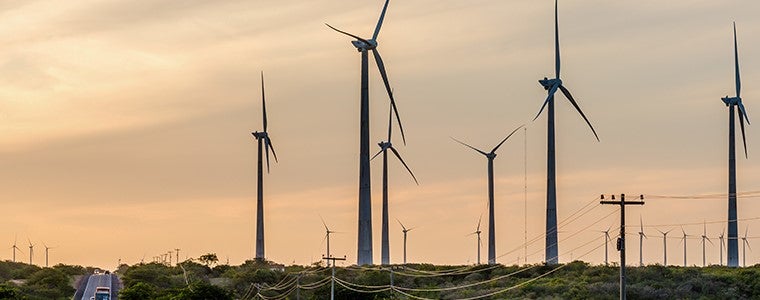2018 is a particularly important year because it will allow us to demonstrate whether we are able to translate the objectives of the Paris Agreement into real actions. In the upcoming COP24, which will take place in December 2018 in Katowice, Poland, one of the main tasks will be to finalize and approve the guidelines needed to operationalize the implementation of the Paris Agreement, officially termed the “Paris Agreement Work Program (PAWP)”. In addition, at the start of this year, the Talanoa Dialogue process was launched. This is the first attempt to take stock of countries’ progress towards the goal of limiting the global temperature increase to well below 2° C.
A crucial issue on the agenda is the financing that many developing countries need in order to foster sustainable economies. The multilateral development banks (MDBs) play a crucial role in mobilizing and leveraging significant amounts of financing to boost sustainable development. Therefore, they are an important channel in the implementation of the Paris Agreement, especially in the alignment of financial resources towards low-carbon and climate-resilient pathways.
During 2017, the Inter-American Development Bank (IDB) Group invested approximately US$ 4.3 billion in climate finance, which means development activities carried out by public and private sector entities that advance mitigation of greenhouse gas (GHG) emissions and/or adaptation to climate change. This amount represented 28.5% of the IDB Group’s total approvals, an increase of 12 percentage points compared to 2015 and 7 percentage points compared to 2016.
Climate finance in the IDB portfolio has increased steadily since 2015 due to key supply and demand factors:
- Mainstreaming climate change in the Bank’s internal procedures, including planning with borrowing countries, sector dialogues and the design of specific operations, which encourages the creation of a more resilient operational portfolio that follows a low trajectory in emissions.
- Collaboration and dialogue with the Latin American and the Caribbean borrowing countries to develop technical capacities and strengthen institutions to translate the Nationally Determined Contributions (NDC) into investment plans and programs to both public and private sector.
The largest portion (20%) of the climate finance provided by the MDBs last year was in Latin America and the Caribbean (LAC) region, which represents an unprecedented level of investment for these countries. The IDB Group is the main partner for this financing. Of the total climate finance of the IDB Group, 79% was related to activities that reduce greenhouse gases. Adaptation activities represented 18%, followed by financing projects that provide simultaneous mitigation and adaptation benefits (4%). In addition, 30% of the total climate finance was directed to the private sector whose investments were mostly in renewable energy and energy efficiency. On the other hand, public investments were concentrated in sectors such as sustainable transportation, solid waste and wastewater management, and agriculture, forestry and other land uses.
The 2017 edition of the Joint Report on Climate Finance, published in June 2018, mentions that the IDB Group together with five other MDBs collectively mobilized US$ 86 billion in activities related to climate change. This included US$ 35 billion of the MDB’s own resources—an increase of 28% compared to 2016—and an additional US$ 51 billion leveraged from other private and public sources. Likewise, of the total of the MDB’s own resources, 16% came from external resources (i.e. Green Climate Fund, Global Environment Facility, among other sources). Thus, since 2015, the MDBs have been fulfilling their commitments to increase their climate finance levels. In the case of the IDB Group, the commitment, endorsed by its Board of Governors, is to increase the financing of climate change-related projects in LAC countries to 30% of the IDBG total approvals by 2020.
This surge in the MDB’s climate finance is a clear response to the increasingly pressing challenges of climate change. We hope this will be a positive signal for greater climate action in both the private and public sectors. This joint task of the MDBs is essential to reinforce commitments, not only to increase climate finance, but also to develop more resilient and low-carbon projects. The application of a common methodology among MDBs gives us greater transparency and comparability. Our next step will be to design and apply metrics that allow us to show stakeholders the impacts of each dollar invested.
Download the Joint Report on Climate Finance here.


Leave a Reply